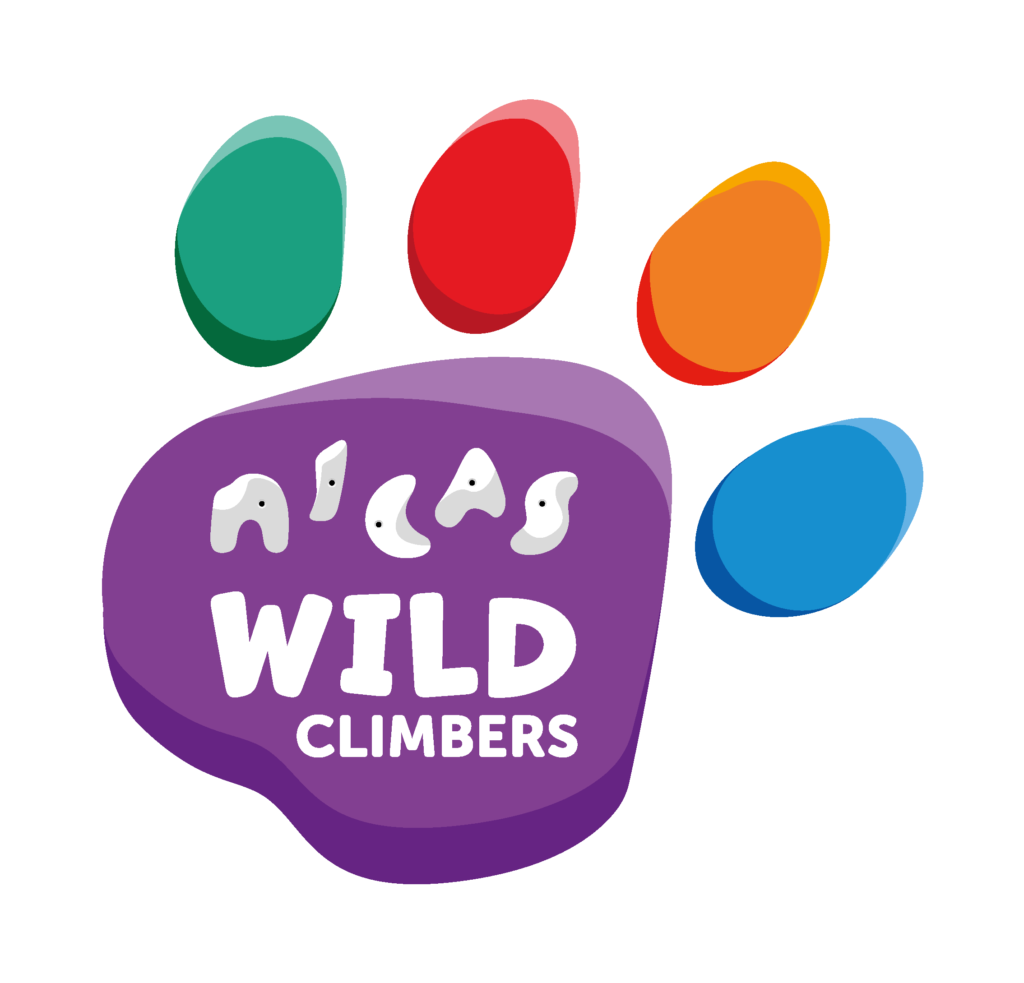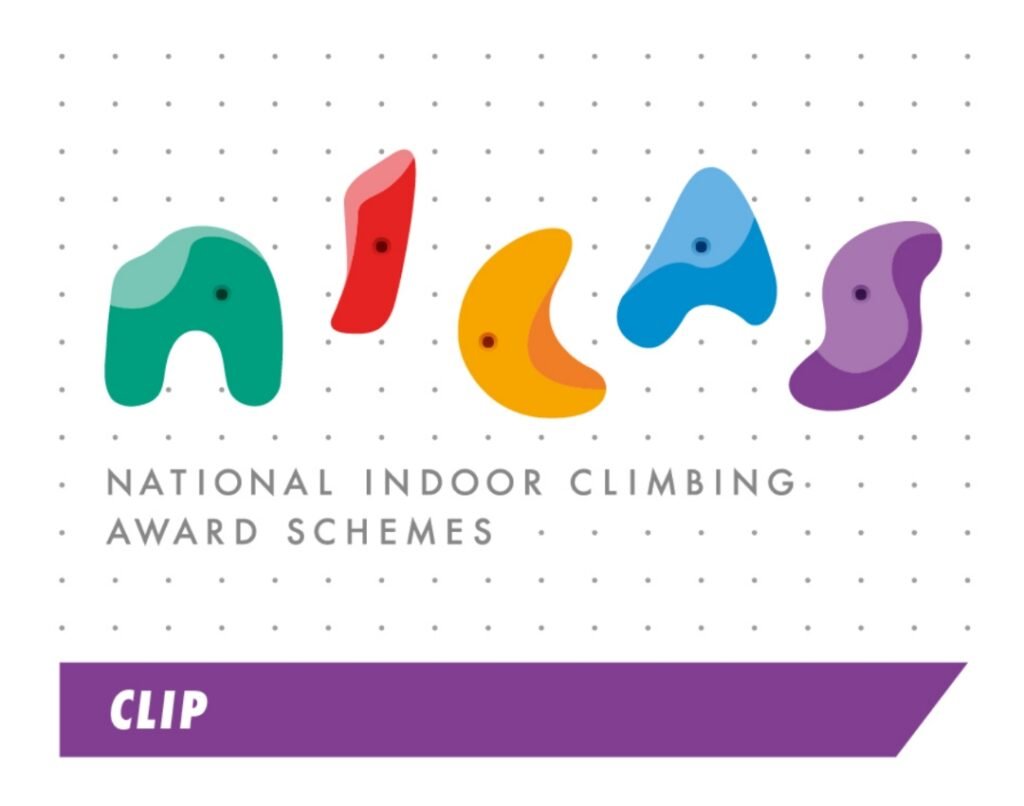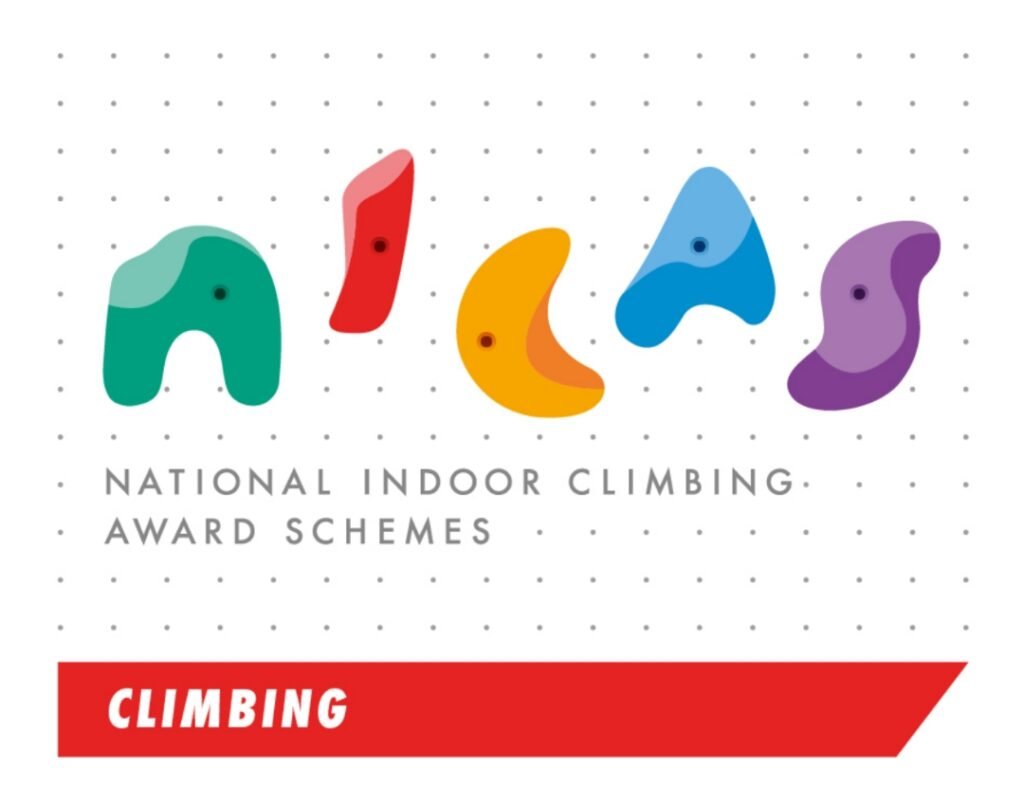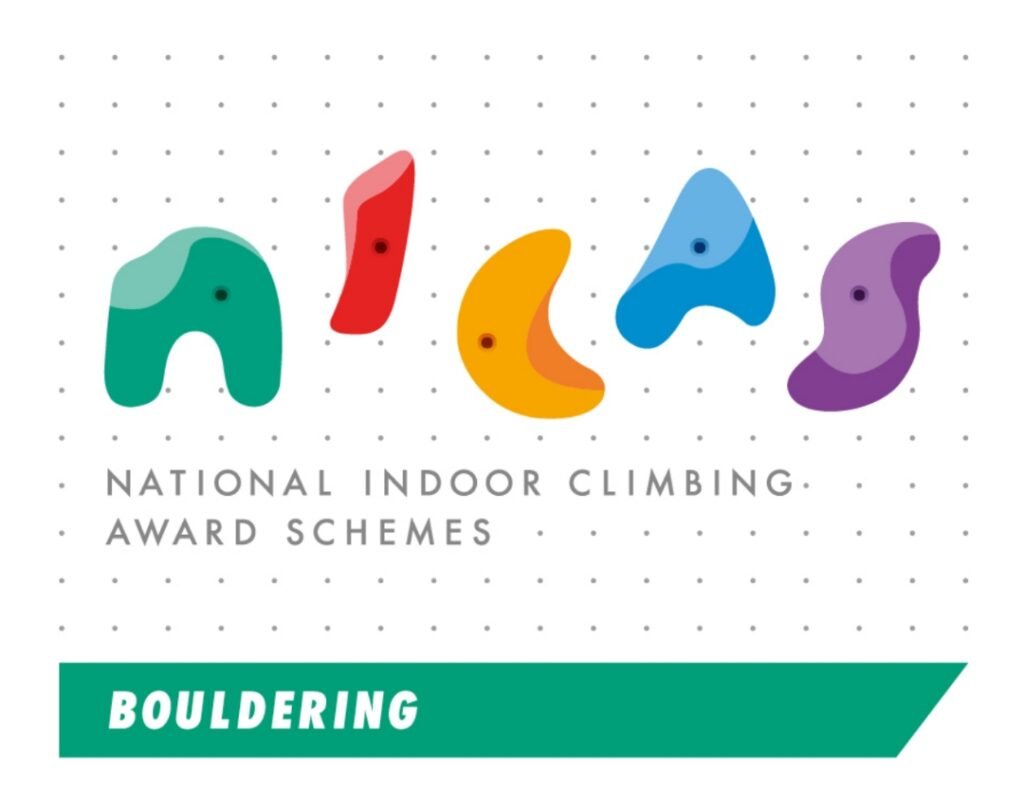NICAS is proud to offer four award schemes: NICAS Wild Climbers, NICAS Clip, NICAS Climbing (our original scheme) and NICAS Bouldering. Our schemes provide a safe, fun introduction to climbing indoors, helping learners to develop climbing movement skills and build their confidence, and create a grassroots pathway to additional climbing activities both indoors and outdoors. Climbers can record progress in their own logbook, giving learners a clear roadmap to track their climbing achievements and a sense of being part of the NICAS community. Finally, by using a NICAS accredited centre, you can be confident in the quality of coaching.
NICAS Wild Climbers

NICAS Wild Climbers is a fun, game filled scheme available from age 3. It aims to introduce early years climbers safely into the indoor climbing environment.
- Age: 3+
- Type of Climbing: Age-appropriate traversing, bouldering, top-roping or auto-belay (depending on centre facilities)
- Progression: Earn animal certificates for 6 different climbing skills
NICAS Clip

NICAS Clip introduces climbing skills with the use of auto belays (the climber is clipped into a specialized device, the auto belay, that takes the place of a person holding a rope). NICAS Clip is available to climbers aged 6 and over. It aims to introduce climbers to the principles of climbing movement in a managed way and give a good introduction into climbing skills.
- Age: 6+
- Types of Climbing: Auto-belay
- Progression: Complete your Foundation award then your Advanced award
NICAS Climbing

NICAS Climbing is for all climbers aged 7 to 70 and beyond. This is a nationally recognised scheme that take you from novice to experienced indoor climber, through five levels. Many thousands of climbers have learnt the ropes with NICAS Climbing.
- Age: 7+
- Types of Climbing: Roped climbing, bouldering from Level 2, lead climbing from Level 4, competition climbing from Level 5
- Progression: From Level 1 (New Climber) through to Level 5 (Advanced Climber)
NICAS Bouldering

NICAS Bouldering is our nationally recognised bouldering scheme moving through five levels from novice to experienced indoor boulderer.
- Age: 7+
- Types of Climbing: Bouldering only (no ropes), competition climbing from Level 4
- Progression: From Level 1 (New Boulderer) through to Level 5 (Performance Boulderer)
Need more info?
- Read our FAQs about taking part in NICAS.
- Find out more about the benefits of taking part in NICAS.
- Find your nearest accredited centre on our Find a Centre map.
- For all other enquiries, please contact us.
